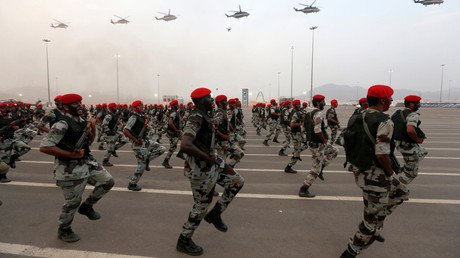New India lauds Mahatma Gandhi on all but one important matter
India is abuzz with Mahatma Gandhi in the year of the 150th anniversary of his birth but there is a new version to his message of “ahimsa” (non-violence) which the country’s enemies are finding out at a great personal cost.
Gandhi was the “apostle” of peace and non-violence who offered the other cheek when slapped but the India of today would rather leave a black eye on its aggressor as it did on Pakistan with retaliatory heavy shelling in Pakistan Occupied Kashmir (PoK) on Sunday, which left at least 6-10 Pakistani soldiers dead and blew up three terrorist camps into thin air.
It was a grim fresh reminder to Pakistan that India has the doctrine of an eye-for-an-eye in its new rulebook and the “surgical strikes” and “Balakot airstrikes” which followed the terrorist attacks in Uri (2016) and Pulwama (2019) are the new philosophy and not an exception.
India is still an adherent to “non-violence” and has an unbroken history of peaceful coexistence, never eyeing others’ territory but the painful lessons of the past demand it puts a premium on the integrity of its Union.
India's National Security Advisor Ajit Doval often reminds his audience that India was overrun by invaders despite being arguably the most advanced civilization of its time. It never protected its seas even though they straddle three of its four corners. It led to the servitude of almost a thousand years. It faced wars imposed by Pakistan on three of four occasions: 1947-48, 1965 and 1999. It didn't use 90,000 prisoners-of-war as a bargaining chip nor did it advance deep inside Pakistan after winning a conclusive war in 1971 which led to the creation of Bangladesh.
Also on rt.com India may become winner in US-China trade warIndia was seen as the epitome of a “soft” nation as terrorists kept crossing the Line of Control (LoC) through Punjab and Jammu and Kashmir and cost tens of thousands of civilians and soldiers’ lives since 1990. The horrific attack in Mumbai, India's commercial capital, when terrorists from across the border sprayed machine guns on civilians on the streets and five-star hotels, known as 26/11 in the nation's damaged psyche, evoked no retaliatory response from India. Worse, the very next year in 2009, the same United Progressive Alliance (UPA), returned to power without any retribution from its masses.
All this has changed for good. India today is driven in its bid to modernize its army: It has only recently ceded its top spot to Saudi Arabia as the biggest arms importer of the world — the Stockholm International Peace Research Institute (SIPRI) reckons India accounted for 12 percent of the total global arms imports for the 2013-2017 period. It has lapped up Russia's S-400 advanced missile system defying the threat of sanctions from the United States. It has gone ahead with its purchase of France's Rafale fighter jets even though the move threatened to derail Indian Prime Minister Narendra Modi's bid for a second term on unfounded charges of corruption this year.
Also on rt.com ‘No precedent in human experience’: Study finds nuclear war between India and Pakistan could leave 125 million deadIndia today is literally taking the fight into the enemy camp: It raked up the issue of Balochistan and its independence from Pakistan; it has vowed to wrest back the control of PoK for a unified Kashmir and its Defense Minister Rajnath Singh has already debunked the ‘No-First-Use’ nuclear doctrine. India stood up for its ally Bhutan and stared down China in a face-to-face standoff between the two armed forces in Doklam in 2017 which lasted months.
India is not only flexing its armed muscle but is also a crusader against global terrorism on international forums. India has successfully overturned China's reluctance in having Masood Azhar of Pakistan blacklisted by the United Nations. It dissuaded South Asian countries such as Afghanistan, Bangladesh and Bhutan from joining the SAARC (South Asian Association for Regional Cooperation) Summit hosted by Islamabad in November 2016 after the Uri attack. It recently tried its very best to have Pakistan blacklisted by the FATF (Financial Action Task Force) and has openly fallen out with Turkey and Malaysia for standing by Pakistan on the Kashmir issue.
India loves and is proud of Mahatma Gandhi and the message of “vasudhaiva kutumbakam” (The World Is One Family) which defined the great man's extraordinary life. But it doesn't want to ignore the lessons of history. It is prepared to lift arms to protect its people and boundaries which is different from being an aggressor. It's a nuanced approach to Gandhi's philosophy and it seems to be paying dividends.
By Ashish Shukla, a senior journalist and geopolitical analyst based in India, author of 'How United States Shot Humanity.' He runs the website, NewsBred.
The statements, views and opinions expressed in this column are solely those of the author and do not necessarily represent those of RT.














